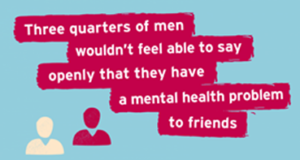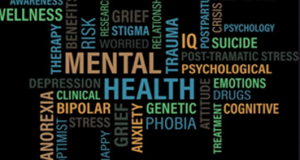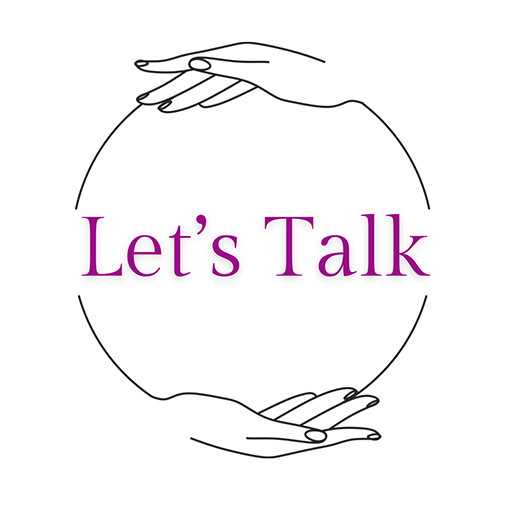Have you ever wondered what it takes to switch careers, especially when it involves something as crucial as healthcare? In this episode of “Let’s Talk,” we explore the inspiring journey of a former obstetrician and gynecologist who transitioned to psychiatry. Her story highlights the importance of mental health and wellbeing awareness in healthcare. It also shows how one can make a significant impact by embracing a new calling. We discuss breaking down stigma and creating a supportive environment for patients and healthcare professionals.
A Calling, Not A Choice
 The guest’s move to psychiatry wasn’t a straightforward decision. It was more of a realization. While training for public health, a professor suggested she would be good in psychiatry. This suggestion led her to explore the field. After doing observer ships and short-term work, she realized it felt like “coming home.” Since then, she hasn’t looked back. It’s fascinating how a simple suggestion can change the course of one’s career.
The guest’s move to psychiatry wasn’t a straightforward decision. It was more of a realization. While training for public health, a professor suggested she would be good in psychiatry. This suggestion led her to explore the field. After doing observer ships and short-term work, she realized it felt like “coming home.” Since then, she hasn’t looked back. It’s fascinating how a simple suggestion can change the course of one’s career.
The Inseparable Link: Physical and Mental Health in Women
As an OB-GYN, she focused on women’s reproductive health. But she quickly realized that physical and mental health are connected. Hormonal changes during and after pregnancy can impact a mother’s mental health. Menopause and other reproductive stages also play a role. Chronic conditions like polycystic ovaries, endometriosis, and chronic pain can lead to long-term anxiety and depression. It works the other way around too. We can’t separate the mind and body. A holistic approach is necessary.
The Medical Model’s Shortcomings
The traditional medical model often focuses on curing illnesses. But it often misses the bigger picture. We need to look at a person as a whole. Her experience in both OB-GYN and psychiatry has shaped her patient care approach. It helps to see both sides of the story. You need to keep both aspects in mind for a fulfilling life.
Gendered Responses to Mental Health: Men vs. Women
 Women are often more expressive and open to seeking help. But their emotional responses can sometimes be a hurdle. Society often tells men to be brave and not to cry. So, it takes great courage for them to talk about their mental health. Things are changing, but there’s still a long way to go. Men often lack support systems and struggle to connect emotionally with friends. They might talk about careers or life, but mental and physical health are often off-limits.
Women are often more expressive and open to seeking help. But their emotional responses can sometimes be a hurdle. Society often tells men to be brave and not to cry. So, it takes great courage for them to talk about their mental health. Things are changing, but there’s still a long way to go. Men often lack support systems and struggle to connect emotionally with friends. They might talk about careers or life, but mental and physical health are often off-limits.
An Hour of Listening: A Profound Interaction
One interaction stands out. A patient kept returning to her gynecology clinic. The usual treatments weren’t working. Frustrated, she discussed the case with a colleague. A doctor suggested giving the patient an hour-long appointment to simply listen. Initially skeptical, she took the advice. During that hour, the patient revealed domestic abuse and coercive behavior. This trauma manifested as physical pain, which we call psychosomatic. It led to her first referral to the psychiatry department. From that moment, she realized that you can’t separate physical and mental health at any stage. Now, she always asks patients about their overall life circumstances. It gives clues about how to treat them.
The Conditioning Against Sharing: Breaking the Cycle
 We’re often taught to keep up with life and not talk about our struggles. But is that really the best way? It’s important to stop and think about what’s happening in our lives. Would you be happy to seek support? The first step is acknowledging that something isn’t right or could change.
We’re often taught to keep up with life and not talk about our struggles. But is that really the best way? It’s important to stop and think about what’s happening in our lives. Would you be happy to seek support? The first step is acknowledging that something isn’t right or could change.
Stigma and Lack of Awareness: Barriers to Seeking Help
 Stigma and lack of awareness prevent people from seeking help. We’re often told that we’re not the only ones struggling. It’s easy to think that’s just how life is. But if it’s impacting your daily life, sleep, or well-being, why not seek support? Some people might cope differently. But what works for them might not work for you. Each person is unique. Why are we scared to say we don’t feel 100%? Especially as women, we’re pressured to be the best daughter, wife, and mother. Why can’t we just be good enough? Be yourself, and seek help if you need it. Build a supportive social circle where you feel safe and can talk about yourself. Opening up is the key to everything.
Stigma and lack of awareness prevent people from seeking help. We’re often told that we’re not the only ones struggling. It’s easy to think that’s just how life is. But if it’s impacting your daily life, sleep, or well-being, why not seek support? Some people might cope differently. But what works for them might not work for you. Each person is unique. Why are we scared to say we don’t feel 100%? Especially as women, we’re pressured to be the best daughter, wife, and mother. Why can’t we just be good enough? Be yourself, and seek help if you need it. Build a supportive social circle where you feel safe and can talk about yourself. Opening up is the key to everything.
Mental Well-being vs. Mental Illness: Understanding the Difference
 It’s important to understand the difference between mental well-being and mental illness. Psychiatry deals with mental disorders or illnesses. These include depression, mood disorders, bipolar disorder, anxiety disorders, and psychotic disorders. They often require medication, therapy, or psychosocial support.
It’s important to understand the difference between mental well-being and mental illness. Psychiatry deals with mental disorders or illnesses. These include depression, mood disorders, bipolar disorder, anxiety disorders, and psychotic disorders. They often require medication, therapy, or psychosocial support.
Mental well-being, on the other hand, is preventative. It’s a lifestyle. Someone might have a mental illness but still have good mental well-being. They might have a job, financial security, and supportive relationships. Conversely, someone without a mental illness might neglect their mental well-being. They might be isolated, eat unhealthy food, drink alcohol, and not sleep well. This impacts their overall state of mind. We need to incorporate mental well-being practices into our lives.
Cultural Considerations: Diversity and Mental Health
 There are differences in how people from different cultural backgrounds approach mental health. Ethnic minorities often have lower service uptake. This is due to stigma and lack of mental health and wellbeing awareness. Mental health isn’t always openly discussed. Some communities are very close-knit and prefer to manage issues internally. People might not know where to seek help. We need culturally sensitive approaches to mental healthcare.
There are differences in how people from different cultural backgrounds approach mental health. Ethnic minorities often have lower service uptake. This is due to stigma and lack of mental health and wellbeing awareness. Mental health isn’t always openly discussed. Some communities are very close-knit and prefer to manage issues internally. People might not know where to seek help. We need culturally sensitive approaches to mental healthcare.
Fractured Thoughts vs. Fractured Bones
Think about it this way. If you fracture your leg, everyone knows you need help. People will bring cards and wish you a speedy recovery. But when you have “fractured thoughts,” nobody knows. Only you and your family might be aware. The impact ripples through your life, affecting your family. Yet, it’s difficult to talk about and seek help. People fear being seen as weak or worry about what society will say.
Cultural Reactions to Mental Health Challenges
People from different backgrounds react differently to mental health issues. Their understanding of mental health and their sense of entitlement can vary. Some might not seek help until they reach a breaking point, even if they know where to find it. Asian communities often have strong family support. But the rush to bring someone home from the hospital can sometimes hinder follow-up care.
Family Support: A Double-Edged Sword
Strong family support can be positive. But it can also lead to a reluctance to seek professional help. Patients might want to be discharged quickly and supported at home. While recovery at home is often best, it’s important to ensure proper follow-up care.
Individual vs. Cultural: Teasing Out the Factors
It’s hard to separate individual preferences from cultural influences. Access to support and ease of seeking help are crucial. We need to make resources readily available and accessible to the public.
The Role of Public Health Services
Public health skills are valuable in mental health. They focus on prevention. How can we prevent someone from developing a mental illness? Public health is data-driven. We can gather data and look at the service needs of a particular population. This includes early intervention and screening. Early treatment for psychotic illnesses can greatly improve outcomes. In her practice, she has started talking about preventative aspects and early interventions. Public Health skills are very helpful in developing psychiatric services.
Preventative Steps: Taking Control of Your Mental Health
 Preventative steps aim to avoid illness or delay symptoms. Mental illnesses can run in families. But life experiences and societal challenges also play a role. Substance abuse can trigger earlier onset. Preventative measures include avoiding drugs and alcohol. It’s also about looking after your lifestyle. If you have a family history of depression, you might be more proactive about your well-being. Do you have family support? Do you have a safe space to talk about your difficulties? Are you living an isolated life? These are important questions to ask. Alongside this, make sure you are taking care of your physical health and general nutritious diet. If something feels “out of character,” seek help. Start with your GP or trusted family and friends.
Preventative steps aim to avoid illness or delay symptoms. Mental illnesses can run in families. But life experiences and societal challenges also play a role. Substance abuse can trigger earlier onset. Preventative measures include avoiding drugs and alcohol. It’s also about looking after your lifestyle. If you have a family history of depression, you might be more proactive about your well-being. Do you have family support? Do you have a safe space to talk about your difficulties? Are you living an isolated life? These are important questions to ask. Alongside this, make sure you are taking care of your physical health and general nutritious diet. If something feels “out of character,” seek help. Start with your GP or trusted family and friends.
Managing Stress and Maintaining Mental Well-being
Healthcare professionals face high stress levels and burnout. She believes in managing stress through future planning and self-care. She sets realistic expectations for herself, patients, and staff. Seeing positive patient outcomes is rewarding. But service demands and funding cuts can be challenging. She manages by having a great family, friends, and a supportive workplace. She loves to host, cook, and invite people. This gives her energy. She also exercises, runs, bakes, and reads. It is important to take time to look after yourself.
The Oxygen Mask Analogy
Think of the airplane oxygen mask analogy. In a pressure drop, you must secure your own mask before helping others. Even as a mom with an infant or an elderly mother, you need to prioritize yourself first. If you’re not 100%, you can’t support anyone else.
Financial Literacy: An Essential Life Skill
Financial literacy is also important. We often don’t talk about money openly. But money is simply a tool. What you do with it matters. She was surprised to find that many professional women had no clue where their money was going. Everything was managed by family members, mostly husbands. Everyone needs to be aware of their finances. You might not need to manage everything. But you need to be aware. Financial independence can relieve a lot of stress, having enough coming in to sustain your life gives you the choice to work on your own terms. Finances affects mental health.
Baking as Therapy: More Than Just a Cake
 Baking, like any hobby, is therapeutic. It’s for yourself. It’s for your me time. Baking brings people together. It requires meticulousness, measurement, and creativity. It enhances time management skills. You troubleshoot and improvise. These are valuable skills. Plus, you get a fantastic cake as a result! She enjoys baking and also uses it to raise funds for charities. It brings people together, and it supports good causes. It just helps to build more skills and being patient and you know being creative and being focused on something which again is a helpful tool in terms of mental well-being.
Baking, like any hobby, is therapeutic. It’s for yourself. It’s for your me time. Baking brings people together. It requires meticulousness, measurement, and creativity. It enhances time management skills. You troubleshoot and improvise. These are valuable skills. Plus, you get a fantastic cake as a result! She enjoys baking and also uses it to raise funds for charities. It brings people together, and it supports good causes. It just helps to build more skills and being patient and you know being creative and being focused on something which again is a helpful tool in terms of mental well-being.
Integrating Mental Health into General Practice
We’ve made progress in integrating mental health into general practice. There’s more collaboration between mental health services and primary care. Many GP surgeries now have psychiatric nurses. But we still need greater parity between physical and mental health. Healthcare workers need to initiate conversations about mental health with patients. Ask about their well-being and preventative measures. We need more training for healthcare staff and increased workplace conversations. An interdisciplinary approach is essential. Professionals from different sectors should have direct contact. This way, we can catch things quicker and avoid working in silos. Primary care is improving, but we need more funding, awareness, and social prescribing.
Practical Advice for Listeners: Simple Steps to Mental Well-being
To improve your mental well-being:
- Prioritize your health, food, and sleep.
- Seek help and talk to people when something feels amiss.
- Develop a hobby or skill unrelated to work.
Learn and grow every day. Strive for 1% improvement each day. Small, consistent efforts compound over time. Keep it simple.
Mental health and wellbeing awareness isn’t something that happens overnight, it takes time to create these habits in your life.
Resources
Remember, raising mental health and wellbeing awareness is key to breaking the stigma.
Watch the full episode on YouTube
Keep advocating for awareness and supporting one another.
Useful Link:
- Mind: This UK-based charity offers a wide range of support and information for those experiencing mental health problems. They provide guides on seeking help, talking therapies, and more1.
- Samaritans: Available 24/7, Samaritans offer confidential support to anyone in distress. You can call them at 116 1232.
- NHS 111: For urgent mental health support, you can call NHS 111 and select option 2. They provide immediate assistance and can guide you to appropriate services3.
- Rethink Mental Illness: This organization provides support and advice for people living with mental health problems. You can reach them at 0300 5000 9272.
- Young Minds: If you’re under 19, Young Minds offers support specifically for children and adolescents. They also have a parents’ helpline at 0808 802 55442.
- Mental Health Foundation: They offer information and support for anyone with mental health problems or learning disabilities2.
Remember, it’s important to reach out and talk to someone if you’re struggling. You’re not alone, and there are many resources available to help you.

